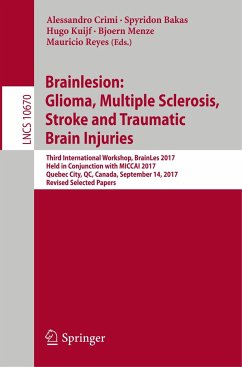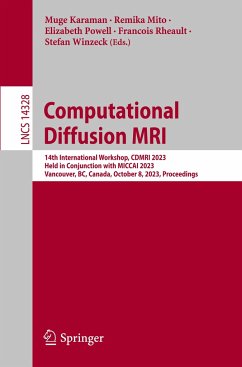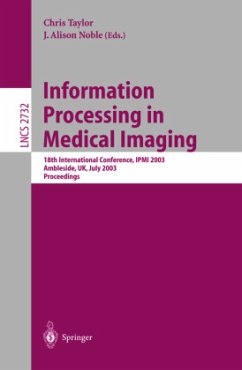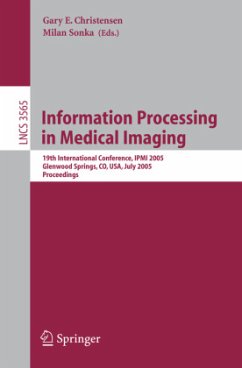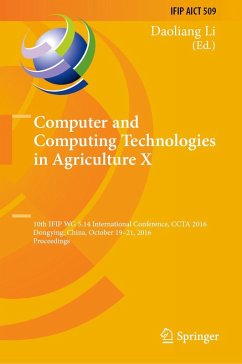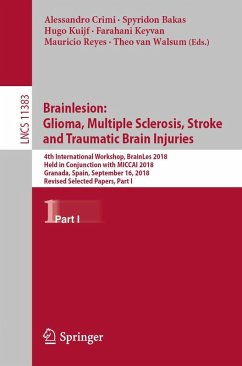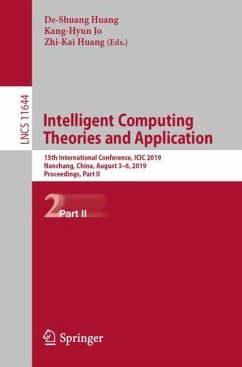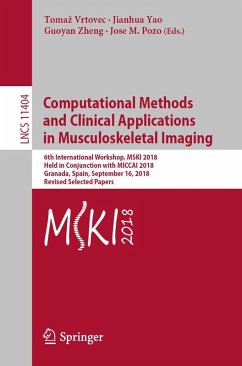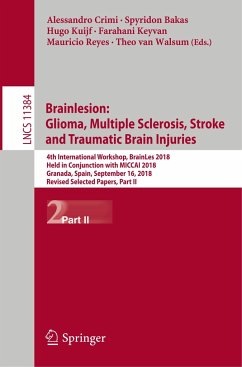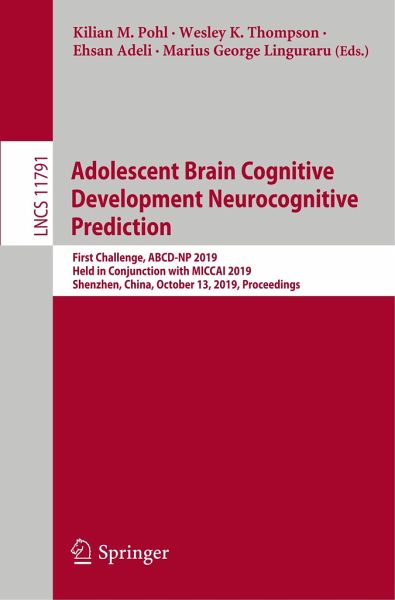
Adolescent Brain Cognitive Development Neurocognitive Prediction
First Challenge, ABCD-NP 2019, Held in Conjunction with MICCAI 2019, Shenzhen, China, October 13, 2019, Proceedings
Herausgegeben: Pohl, Kilian M.; Thompson, Wesley K.; Adeli, Ehsan; Linguraru, Marius George

PAYBACK Punkte
19 °P sammeln!
This book constitutes the refereed proceedings of the First Challenge in Adolescent Brain Cognitive Development Neurocognitive Prediction, ABCD-NP 2019, held in conjunction with MICCAI 2019, in Shenzhen, China, in October 2019.29 submissions were carefully reviewed and 24 of them were accepted. Some of the 24 submissions were merged and resulted in the 21 papers that are presented in this book. The papers explore methods for predicting fluid intelligence from T1-weighed MRI of 8669 children (age 9-10 years) recruited by the Adolescent Brain Cognitive Development Study (ABCD) study; the largest...
This book constitutes the refereed proceedings of the First Challenge in Adolescent Brain Cognitive Development Neurocognitive Prediction, ABCD-NP 2019, held in conjunction with MICCAI 2019, in Shenzhen, China, in October 2019.
29 submissions were carefully reviewed and 24 of them were accepted. Some of the 24 submissions were merged and resulted in the 21 papers that are presented in this book. The papers explore methods for predicting fluid intelligence from T1-weighed MRI of 8669 children (age 9-10 years) recruited by the Adolescent Brain Cognitive Development Study (ABCD) study; the largest long-term study of brain development and child health in the United States to date.
29 submissions were carefully reviewed and 24 of them were accepted. Some of the 24 submissions were merged and resulted in the 21 papers that are presented in this book. The papers explore methods for predicting fluid intelligence from T1-weighed MRI of 8669 children (age 9-10 years) recruited by the Adolescent Brain Cognitive Development Study (ABCD) study; the largest long-term study of brain development and child health in the United States to date.





